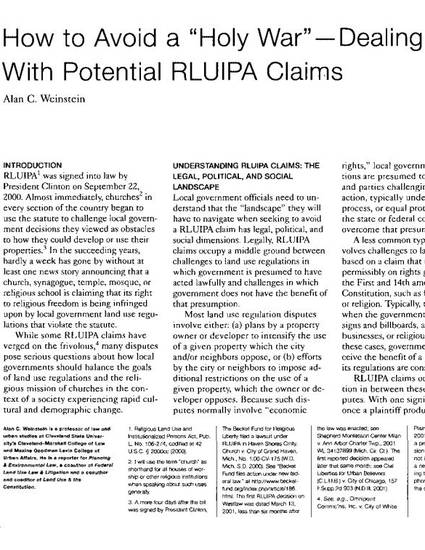
- free exercise of religion,
- local government,
- land use regulation
This article discusses how local government can seek to avoid a claim being brought against it under the Religious Land Use & Institutionalized Persons Act (RLUIPA). Thus, the focus is not on what steps a local government should take when a RLUIPA claim is brought - or threatened to be brought - against it, but focuses instead on what steps local governments should take to seek to avoid a RLUIPA claim in the first place. After reviewing both the changing context of religious observance in the United States, and RLUIPA decisions to date, the article concludes that we are clearly in the midst of a dynamic environment socially, politically, and legally as regards the role of religion in our society and RLUIPA reflects this in the context of potential conflicts between churches and land use regulation. In this environment, local governments face a difficult task in seeking to avoid RLUIPA potential claims and evaluating their likelihood of prevailing if challenged. Local officials can, however, take several steps to lessen the likelihood of a potential claim, including: a comprehensive review of the treatment of religious institutions in its land use codes, both substantively and procedurally; training officials and employees to be sensitive to religious differences; and recognizing that land use applications from and enforcement of regulations against religious institutions must be handled with special care.
Available at: http://works.bepress.com/alan_weinstein/35/
